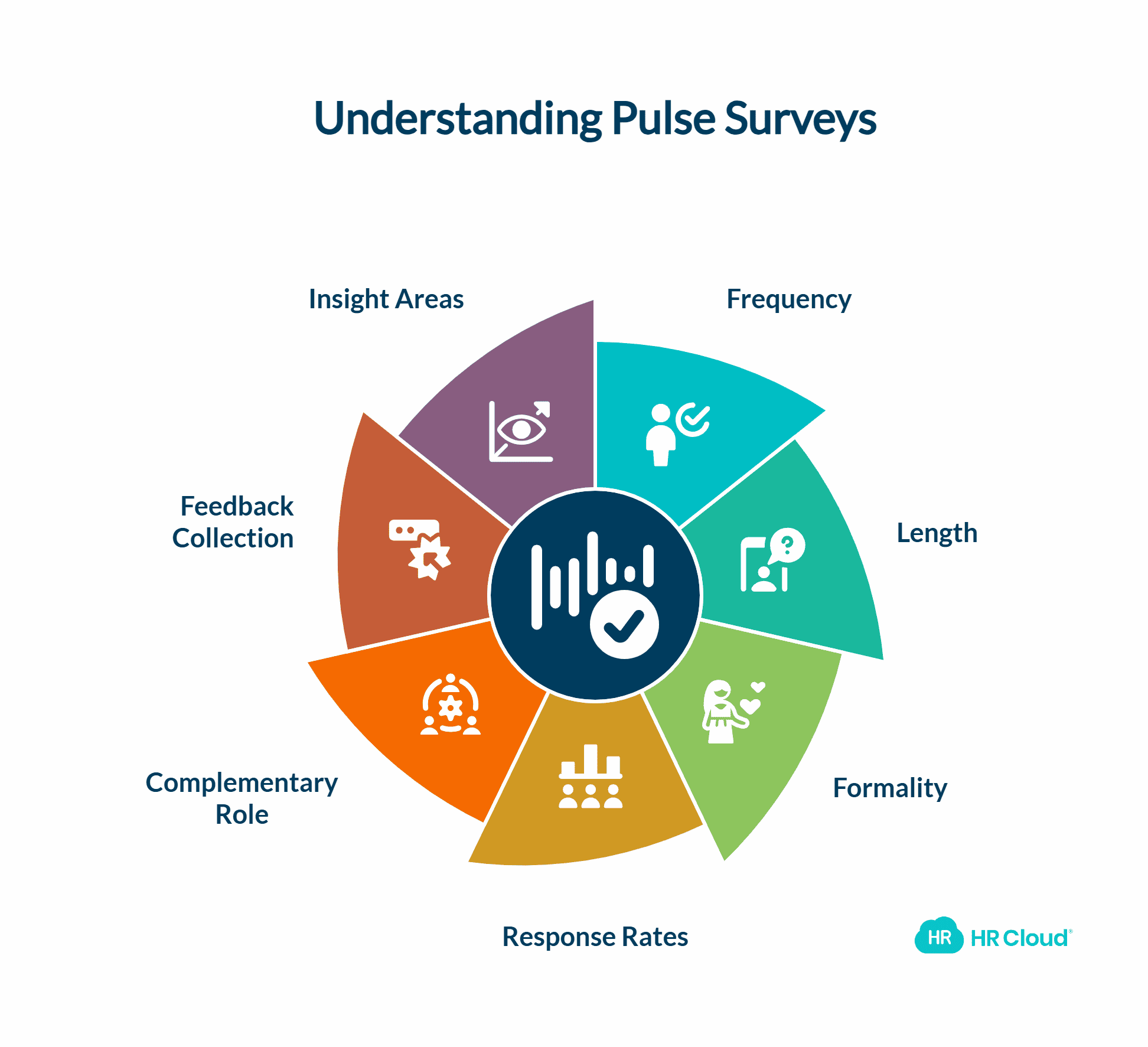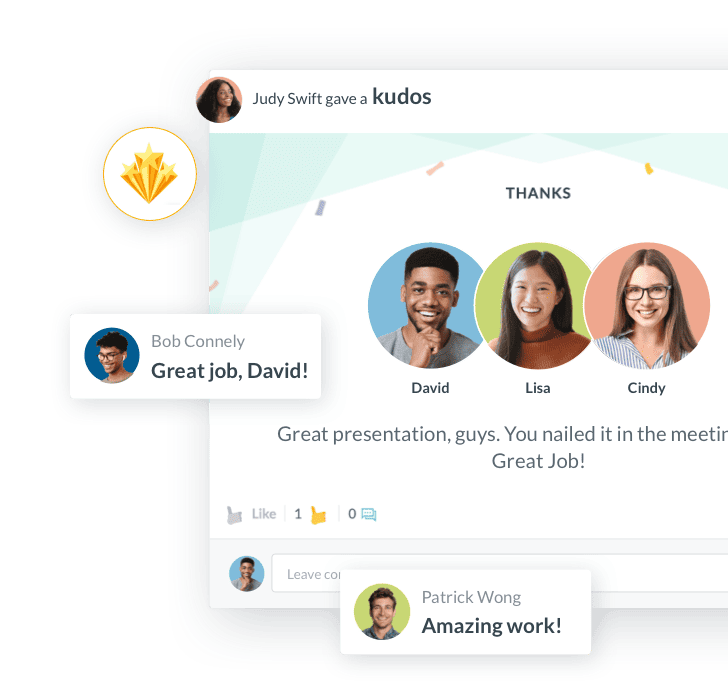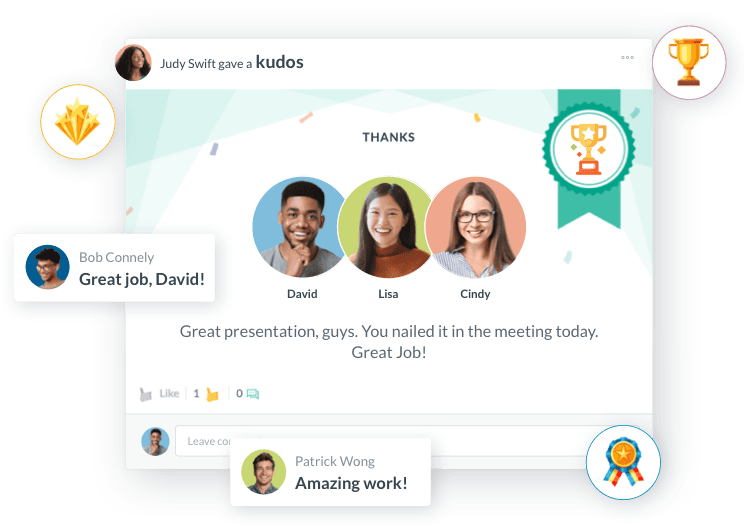

 Cut onboarding time
by 60%—here's the
Ultimate Checklist
that helped do it.
Cut onboarding time
by 60%—here's the
Ultimate Checklist
that helped do it.

Imagine this scenario:
A small technology company recently implemented a back-to-office policy that required all employees to be in the office five days a week. While leadership was vaguely aware that some employees didn’t love this new arrangement, they began to realize this might be a larger issue when they started losing one or two top performers in key roles.
At the end of the year, they circulated their annual employee survey, and they were shocked to hear overwhelming feedback that the vast majority of employees really didn’t like this new policy and that many admitted that it would cause them to look for new opportunities in the year ahead.
Like any other company, this small business couldn’t afford excessive turnover and quickly adjusted its policy by offering a new hybrid alternative. While this was a good decision that aligned with employees’ preferences, it was still too late. Three more employees resigned since they had already committed to finding positions that offered more flexibility.
“What could we have done to learn about this earlier?” asked the CEO. “More importantly, how could we have used this information to make better decisions for the business?”
Employee pulse surveys are an extremely effective way to achieve both goals.
What Are Pulse Surveys?
Pulse surveys, also known as pulse checks, are short questionnaires, polls, or other feedback mechanisms that are sent more frequently than traditional annual surveys, which may be sent once a year (if at all). They’re also much shorter and often more informal, which means that they usually take far less time to develop and send, and may get more employees to complete them, resulting in higher survey response rates.
They’re also the perfect complement to traditional employee engagement surveys, which tend to be longer and cover a wider range of topics. As a result, pulse surveys can be the perfect way to collect faster feedback and more meaningful employee insights related to new trends, policy changes, or potential issues in the workplace. They can also measure employee engagement, job satisfaction, or things they may be looking for to improve your organizational culture and boost employee morale.
Examples of Pulse Surveys
What types of topics are best addressed by employee pulse surveys? The answer is “just about any” when it comes to connecting with employees and asking for their feedback related to the workplace.
The following are some employee-focused topics well-suited for pulse surveys:
1. Overall employee engagement: What’s working well and what could we do to make it better?
2. Workplace culture: How do you feel about our existing organizational culture? Would you like to see any changes?
3. 360-degree feedback: Let us know how you think your manager or even company executives are doing.
4. Policy feedback: Do you like specific company policies? Do you not like them? Would you make any suggestions to change what is in place now?
5. Work-life balance: How well is the company supporting employees’ work-life balance? Would you recommend any changes?
6. Remote work policies: Similarly, would you like to see any updates to our current policy? Do you have the flexibility you need?
7. Overall job satisfaction: How satisfied are you with your position? What would make you happier and more fulfilled in your role?
8. Employee wellness: How well is the company doing to support employee wellness? Are we offering enough programs and options? What are we missing?
9. Mental health: Could we do more to support employees’ mental health needs and goals?
10. Suggestions for improvements: If we’ve missed anything, do you have any suggestions for things we can do to improve and make this company a better place to work?
The goal of any pulse check survey is to quickly collect important feedback from employees based on their view of a particular topic or issue. Managers shouldn’t try to fit too much into a single survey since they might start to resemble longer-format, annual surveys. Instead, they should consider rolling them out more frequently to keep them short and highly focused and to encourage higher participation from employees.
How Are Pulse Surveys Delivered?
Pulse surveys are usually digital communications sent from HR solutions (such as HR Cloud’s Workmates), including mobile apps. HR applications with proven capabilities related to polls and surveys are usually a better idea than attempting to send them in email, since these pulse survey tools offer automated scheduling capabilities, reports, and other analytical tools that help managers and executives interpret employees’ feedback.
One other consideration when designing pulse surveys: It may be worth creating surveys that collect anonymous feedback since this can be a good way to get more honest insights from employees and improve survey response rates.
Turning Feedback into Action with Pulse Surveys
In today’s workplace, understanding employees’ views, opinions, and general perceptions can be critical for any company looking to improve its culture and reduce turnover. Pulse surveys are a simple yet powerful way to collect real-time feedback, which gives businesses an effective way to proactively address any potential issues before they can become larger challenges.
By using these short, highly-targeted surveys, companies can go a long way to creating a culture of open communication where employees feel heard and valued. They aren’t just a feedback tool – when used correctly, pulse surveys can support new strategies for building a more employee-centric organization, which in turn can help the company achieve its business goals.
The pulse survey's meaning extends beyond just collecting data; it's about fostering an environment of continuous improvement. By regularly conducting pulse checks, organizations can track engagement levels over time and identify trends that may impact employee satisfaction and overall employee experience.


FAQs
1. What is a pulse survey?
A pulse survey is a short employee-focused survey designed to quickly collect their feedback and opinions on specific topics in the workplace. Unlike traditional annual surveys, pulse surveys provide faster, more informal insights into possible issues that management would like to address.
2. How are pulse surveys delivered?
Pulse surveys are typically delivered through online survey tools, email, or HR software, making it easy for employees to respond quickly. They are designed to be short and accessible on any device to encourage high participation rates.
3. What are the benefits of pulse surveys?
Pulse surveys provide real-time insights into employees’ perceptions and concerns, allowing organizations to quickly identify and address them before they become larger issues. Pulse surveys also foster a culture of continuous feedback, leading to improved engagement, better decision-making, and a more responsive workplace. They are an essential part of any employee listening program and help in boosting employee morale and satisfaction.

Keep Reading
Why Healthcare Organizations Choose HR Cloud Over Alternatives
What is the Best Healthcare HR Software for Medical Organizations?
The Complete Guide to Remote Work Policy Compliance: Navigating Multi-State Tax, Legal, and Security Requirements in 2026
With 22.9% of US employees working remotely as of Q1 2024—up from 19.6% the previous year
Enterprise HRIS Implementation: Rippling vs HR Cloud Integration Capabilities and Deployment Success
Enterprise HR Software Implementation Comparison
Like What You Hear?
We'd love to chat with you more about how HR Cloud® can support your business's HR needs. Book Your Free Demo

Build a Culture of Recognition. Boost Engagement. Guaranteed.
Workmates empowers employees to stay informed, connected, and appreciated—whether they’re on the front line, in the office, or remote. Recognition drives 12x higher engagement.Trusted by industry leaders in every sector




Cut Onboarding Costs by 60%.
Take the confusion and follow-ups out of onboarding with automated workflows, digital forms, and structured portals—so new hires ramp faster 3X quicker.Trusted by industry leaders in every sector





